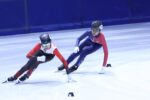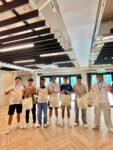CAS Project – An Online Book Club
The Book Club aimed to raise awareness for racial inequality, a pressing issue in nowadays society, and to garner interest in literature, a less pressing issue in nowadays society. In particular, we looked at two books that discussed the prejudice faced by minorities – The Hate U Give by Angie Thomas and To Kill a Mockingbird by Harper Lee.
Each session followed more or less the same trajectory: we would review the chapters we asked our participants to read, analyse extracts, answer questions, and have discussions accompanied by statistics and other relevant content. On average, we had about a dozen participants from lower years joining our session each week. Since our audience was quite young, we had to ensure that our content was age-appropriate. Not only did this club give the younger years an opportunity to brace themselves for Ms Daw’s English class, but it also stimulated critical thinking and spurred them into a more passionate outlook towards taboo issues like racial inequality and social divide.
As our activity was held online, it was unlike what we expected a book club to be like. It had the expected aspects of reading and discussion, but also empowered us to imbue our own personality throughout the sessions. This was done by interspersing personal anecdotes relating to the content to make it more immersing. This was a bit challenging as we did not want to minimise the struggles of minorities by comparing their situations with our own predicaments, so we tried to find less serious topics to relate to. This was quite amusing as we were able to learn more about each other, which improved our collaboration skills, one of our learning objectives. This also helped our members feel more comfortable with us, which at times encouraged them to participate more.
Overall, it was a rewarding experience and we looked forward to it. It provided us with a valuable learning opportunity for leadership and organisation, as well as helped us gain a deeper understanding of the matters we discussed. We struggled at times, for example when we were unable to spark discussions with our participants, but we didn’t allow that struggling to weigh us down. Thus, we attempted to combat that issue by making our content more engaging and open-ended to encourage interaction. We are very proud of everything we have achieved and learnt in the process.
By Liam Hordijk and Marjovie Liu (Year 12 students)



